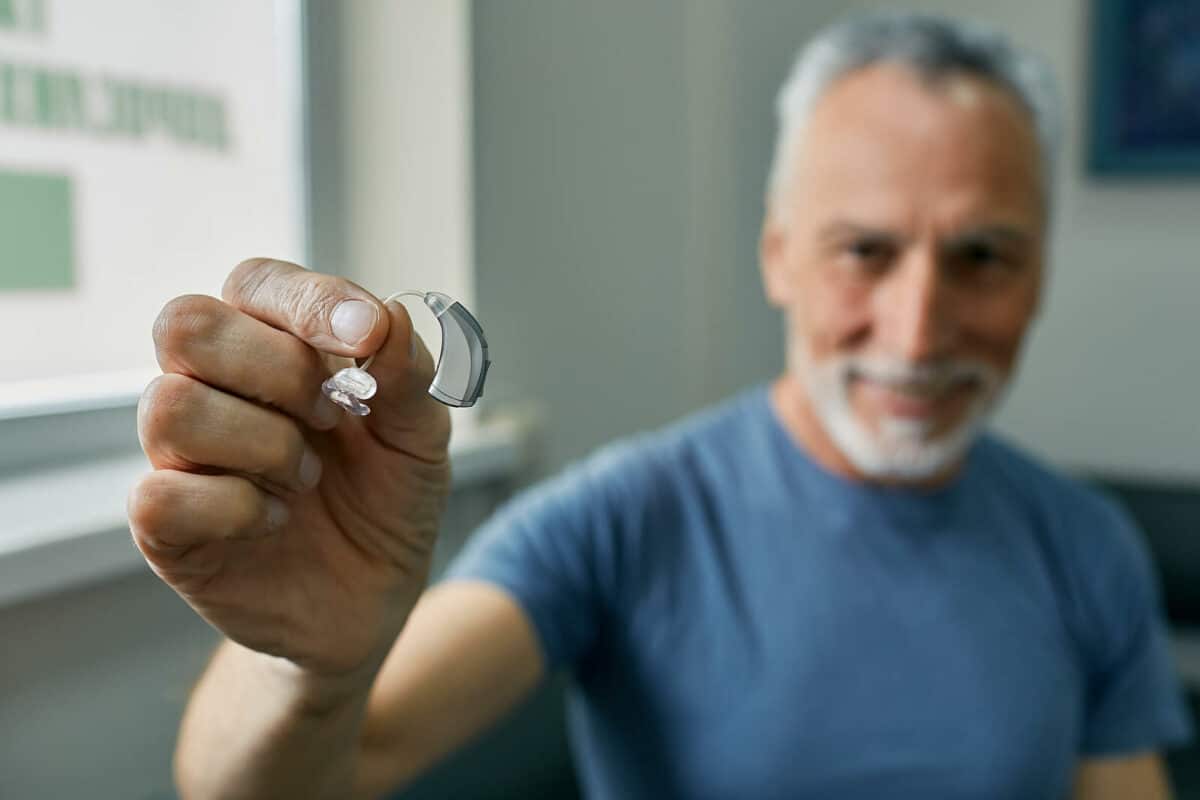- How Smoking Can Harm Your Ears - March 11, 2025
- Succeeding in the Workplace with Hearing Aids - February 10, 2025
- Welcoming the New Year with Better Hearing - January 2, 2025
If you’ve had your hearing aids for some time, you may be wondering when you should update them. This is a frequently asked question that is essential to prioritizing your hearing health. Hearing aids are critical devices that provide ample hearing support, allowing people to navigate everyday life with greater ease and safety. When you should update your hearing aids depends on a few factors. So to know when it’s time for a new device, it is helpful to first ask yourself the following questions:
Have you experienced major changes in your life?
Lifestyle factors are important to consider when identifying hearing aids that are optimal for you. This is why your hearing healthcare provider likely asked you about your work and social life as well as any activities or hobbies you regularly engage in, travel, exercise etc. These factors identify the types of environments that you navigate on a daily basis. This is helpful because it reveals what your hearing aids need to be able to do in order to optimally meet your hearing needs in these settings.
If any of these factors change over time, it is important to share this with your hearing healthcare provider because you may need to update your hearing aids. This includes if your work environment changes, you move to a new climate, or start engaging in a new physically active hobby. There may be hearing aids that are more suited to support your hearing in these contexts.
Have your hearing needs changed?
Your hearing needs can change over time and if they do, this is another sign that you may need new hearing aids. Hearing loss ranges from mild to more profound and where your hearing is on this spectrum can shift. This can happen with people experiencing age related hearing loss which can worsen as one ages. It is important to get your hearing assessed regularly so that you can track your hearing health. Getting your hearing evaluated regularly allows you to identify any changes you may experience which can signal new hearing aids are needed. The types of sounds and speech that you have trouble hearing may change, your hearing needs in one ear can shift etc. You may benefit more from hearing aids that have more power and capabilities. In this case, your hearing healthcare provider is able to determine if new hearing aids would better meet your hearing needs.
Are your hearing aids not working well?
If your hearing aids aren’t working as well, you will likely notice it. This includes the sounds that are being delivered being less clear, muffled, or distorted. Additional signs include experience feedback or seeing that there is visible damage – cracks, breakage, clogged tubes etc. If you experience this, it is important to take your hearing aids to be professionally inspected. Your hearing healthcare provider can thoroughly examine your hearing aids, run performance tests, and identify underlying causes that may be contributing to the issues you are experiencing.
Your hearing aids may need repair work or your provider may let you know that it is time to update your device. This could be because of damage they experienced or that your device has reached the end of its lifespan. Hearing aids typically last 5-7 years, depending on the specific device and model. Be sure to ask your hearing healthcare provider what the lifespan of your hearing aid is so that you can plan when you need to update them.
Are you interested in the latest hearing technologies?
If you have had your hearing aids for a while and are interested in upgrading technologies, this is another sign that you should update your hearing aids. Today’s devices offer a range of features that deliver crisp sound quality, increased connectivity, and an overall seamless hearing experience. This includes digital noise reduction, wireless connectivity, tinnitus management, and voice recognition features. Additionally, there are numerous hearing aid accessories that also support hearing and communication. If you are interested in the latest features, be sure to navigate your options with your hearing healthcare provider.
Contact us today to learn more about updating your hearing aids and how to effectively navigate your options!


